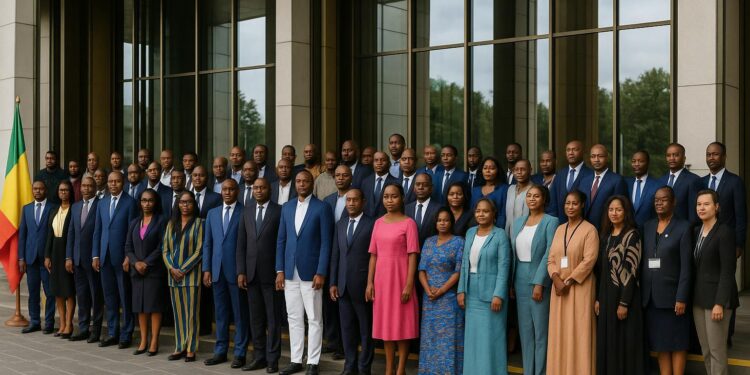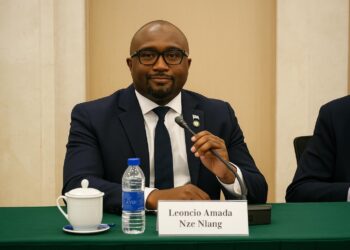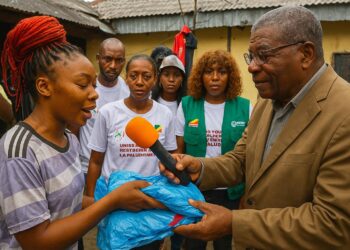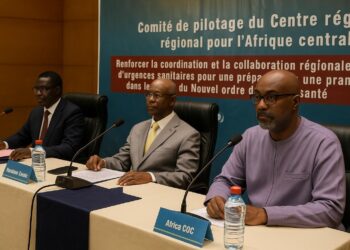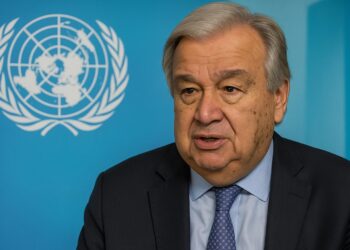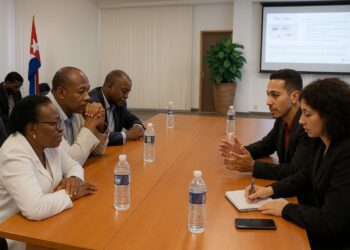Regional Dialogue on Plant Health
Delegates from twenty African states filed into Brazzaville’s new Kintélé conference center this week, answering a joint call from the FAO and the International Plant Protection Convention to rethink regional biosecurity rules.
Over four days, working groups will comb through draft International Standards for Phytosanitary Measures, line by line, before sending collective comments to Rome ahead of the 2024 IPPC Commission session.
Stakes for Food Security and Trade
Plant pests and diseases already wipe out an estimated forty percent of Africa’s staple crops each season, according to FAO data, translating into annual losses above 220 billion US dollars and undermining the continent’s push toward self-sufficiency and reduced food import bills.
Harmonised phytosanitary norms, proponents argue, would allow African produce to cross borders faster, cut inspection costs, and reassure international buyers still wary after recent interceptions of contaminated cargoes in European and Asian ports.
Congo-Brazzaville’s National Priorities
Congo-Brazzaville positions itself as a facilitator rather than a mere host. Agriculture Minister’s chief of staff, Pascal Robin Ongoka, told the plenary that ‘plant health is national security in another form’, underscoring government plans to raise the sector’s share of GDP from eight to fifteen percent by 2030.
Brazzaville has recently upgraded border checkpoints with mobile laboratories, funded partly through the African Development Bank’s SAPZ program, to speed diagnosis of viral diseases in cassava and maize without delaying trade along the Congo and Bouenza corridors.
Technical Standards under Review
Inside the closed committee rooms, attention centers on three draft texts: criteria for the use of irradiation as a phytosanitary treatment, guidelines for audit-based certification, and revised surveillance protocols for Xylella fastidiosa, the bacterium devastating olive orchards around the Mediterranean.
Delegates from Kenya and South Africa, already running commercial irradiation units, pressed for language that recognises private-sector facilities, while landlocked states sought transitional measures, fearing that sudden rule changes could disrupt supply chains for cut flowers and beans.
Aligning with Continental Strategies
The workshop dovetails with the African Union’s Sanitary and Phytosanitary Policy Framework adopted in Malabo in 2023, which urges members to converge regulations to unlock the African Continental Free Trade Area’s projected 450 billion-dollar market.
Observers from the AfCFTA secretariat in Accra reminded participants that inconsistent inspection regimes currently add an average ten cents per kilogram to cross-border grain costs, enough to erase margins for many smallholders.
Outlook for Implementation
To translate the Brazzaville debates into action, the FAO pledged to finance national capacity-building missions over the next twelve months, each pairing an international expert with local quarantine officers to redesign risk-analysis templates and electronic certification systems.
The World Bank is considering a complementary 100 million-dollar line of credit under its CADAP portfolio to help governments modernise laboratories and adopt blockchain traceability, an approach already piloted in Côte d’Ivoire’s cocoa chain.
Success will also depend on sustained public awareness; the IPPC’s secretariat plans radio spots in local languages explaining how travellers can prevent the accidental spread of fruit-fly larvae or banana weevils.
Expert Voices and Partnerships
‘The region cannot afford another outbreak like the fall armyworm episode of 2016,’ warned Professor Edgard Zannou, head of Benin’s National Plant Protection Service, citing yield falls of up to twenty-five percent during that crisis.
Yet optimism was palpable. Dr. Aissatou Diallo of Guinea observed that countries once divided by linguistic blocs are now ‘reading the same technical glossaries and auditing each other’s labs, an unprecedented step toward trust’.
Inclusive Financing Pathways
Financiers attending under the African Risk Capacity umbrella argued that insurance premiums could fall if verified phytosanitary systems lower the probability of border closures, opening a virtuous circle in which plant health standards and market confidence reinforce each other.
Negotiators will reconvene virtually in November to consolidate the Brazzaville edits before they reach the IPPC Secretariat’s December deadline.
ARC’s technical lead Patience Goka revealed preliminary modelling indicating that every one-dollar investment in early detection yields four dollars in avoided emergency response costs, a ratio that has persuaded several finance ministries to earmark contingency funds for surveillance operations next season.
Meanwhile the European Union’s DG SANTE signalled willingness to co-finance West and Central African trainings on pest risk analysis, viewing diversified, resilient supply chains as shared insurance against climate-driven shocks increasingly threatening Mediterranean orchards.
Civil society representatives cautioned that gender disparities could blunt programme impact; women grow most household staples yet receive under ten percent of extension visits, raising fears that traceability apps and irradiation protocols might bypass those who feed rural families.
FAO sub-regional coordinator Patrick Kormawa replied that upcoming farmer field schools will distribute solar chargers and voice-based diagnostics in Lingala, Swahili and Bété, ensuring smallholders ‘move from being disease victims to frontline sentinels’.
For now, Brazzaville’s corridors echo with simultaneous translation and the scent of locally roasted coffee, yet participants share a rare consensus: stronger plant protection is no longer a technical luxury but a strategic imperative for Africa’s prosperity and its trading partners alike.

































